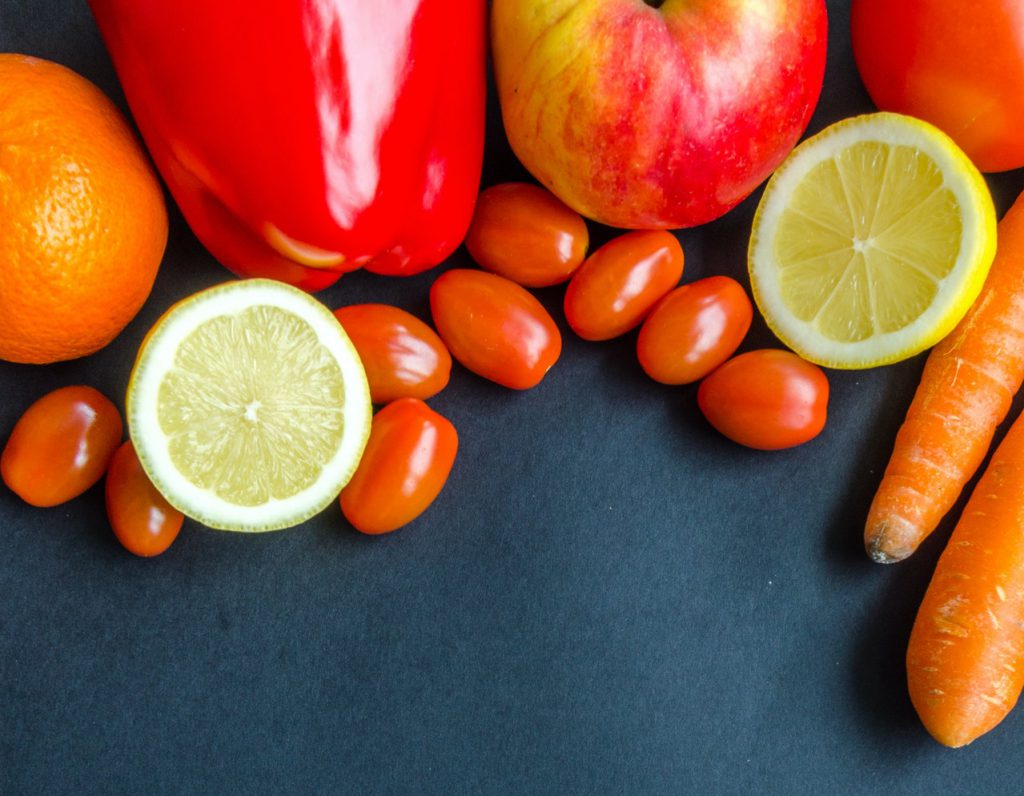
“You are what you eat.” We’ve heard this proverb for a while now. Turns out that it’s true! When it comes to eating for the health of your eyes, there are a few key vitamins and essential nutrients to focus on that will help to lower your risk for cataracts, glaucoma, and age-related macular degeneration. While these are available as supplements, experts agree that eating whole foods rich in vitamins, minerals, and other essential nutrients is best for your body.
Vitamin A: Fuels your retina, which is part of the eye that turns light rays into images. Typically found in the orange-hued fruits and vegetables like carrots, sweet potatoes, cantaloupes, and apricots.
Vitamin C: Vital for blood vessels that support the eye and have been found in studies to be useful in decreasing the risk of cataracts. Check out high vitamin C foods like oranges, grapefruit, tangerines, bell peppers, guavas, peaches, papayas, tomatoes, strawberries, kiwi, broccoli, and cucumbers!
Vitamin E: Helps with decreasing the risk of cataracts and age-related macular degeneration. Vitamin E, which the human body cannot make on its own, is found in oil-rich foods like avocados, almonds, peanut butter, nuts, and sunflower seeds.
Omega-3 Fatty Acids: Omega-3s provide benefits to the retina and help to reduce the risk of glaucoma, age-related macular degeneration, and dry-eye syndrome. Omega-3 fatty acids are typically found in cold-water fish like salmon, trout, tuna, and halibut. They are also in nuts and eggs.
Zinc: An essential trace mineral that plays a vital role in bringing vitamin A from the liver to the retina to produce melanin, a protective pigment in the eye. A zinc deficiency can cause low vision and cataracts. It is found a variety of foods such as red meat, poultry, beans, and nuts.
Lutein and Zeaxanthin: These antioxidants help to protect the macula (part of the retina that gives us clear vision) and are found in green leafy vegetables like kale, broccoli, spinach, peas, turnip greens, romaine lettuce, and eggs, too.
Other antioxidant-rich foods like blueberries and green tea are also helpful in maintaining good eye health.
For in-depth information on the role food plays in eye health, check out the American Optometric Association website. And to see a sampling of recipes that include the foods good for your eyes (and overall health), take a look at the American Macular Degeneration Association’s site.

